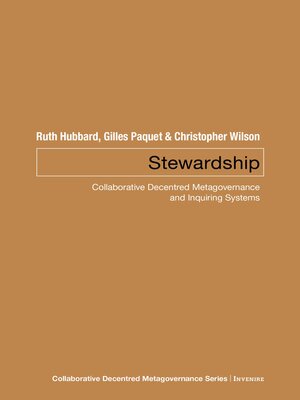
Sign up to save your library
With an OverDrive account, you can save your favorite libraries for at-a-glance information about availability. Find out more about OverDrive accounts.
Find this title in Libby, the library reading app by OverDrive.



Search for a digital library with this title
Title found at these libraries:
| Library Name | Distance |
|---|---|
| Loading... |
This first volume in the Collaborative Decentred Metagovernance Series scopes:
This book explains how collaborative decentred metagovernance combines forms and styles of governance being experimented with in the private, public and voluntary sectors, to ensure effective coordination when no one can legitimately lay claim to being in charge because power, resources and information are widely distributed into many hands, and governance must, of necessity, be decentred and collaborative.







